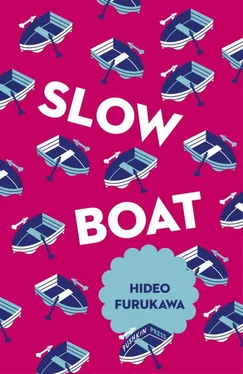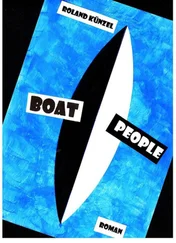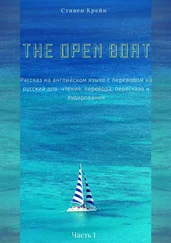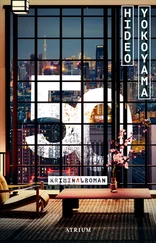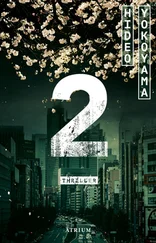19-19-1994.
Sounds ominous. Like an emergency phone number you hope you never have to call.
We spent the next few months lost in sex. Somewhere in there, she became my girlfriend—the second to appear in my history. Long live poverty! Every girl I’d ever been involved with commuted from home—somewhere in the twenty-three wards of Tokyo. And the same went for me. A pure Suginami boy. When I needed privacy, I had to buy it. Most of the time, that meant love hotels. Karaoke boxes weren’t made for going all the way. But asking a girl to go fifty-fifty on a love hotel was basically impossible. In other words, “dating” tended to eat up what little money I had.
Until then.
Until her.
We did it whenever we felt like it. Because she had her own place. Her bed was ours to use however we wanted. We made it creak, we made it shake. That’s how we got closer—by getting physical. We were making something. Alchemically, I mean.
She was from way up north. Asahikawa, Hokkaido.
And she, by the way, had these amazing areolae, like, around her nipples. I’m a breast guy. I love breasts. But hers were special—unlike any I’ve ever seen. Just the shape of them—they had purpose .
“See this?” she asked, showing me her left breast while we were in bed. “Looks like Hokkaido, right?”
“Holy shit… Yeah.”
Without a doubt, her left areola was a flawless map of Hokkaido.
Complete with the Habomai Islands.
For the record, she called them her “areas”—not areola. A little too generic for my taste.
“Here are the Tokachi Plains,” she pointed, giving me the full tour. “…And here’s where I come from. The middle of the Kamikawa Basin. No, not there! That’s my nipple… See where the skin dips in? That’s the Ishikari River. Sapporo’s over here…”
“Cool, cool.”
“OK, pop quiz—where’s Hakodate?”
“Um, around here?”
“Gold star! You really know your geography. I don’t know where anything is around Tokyo.”
“God, you’ve got such excellent areolae. The more I look, the more I like.”
“Right? I’m really proud of my areas.”
“You mean… you show them to people?”
“Why? Are you jealous? Haha.”
That was how we loved each other.
“I had to come to school in Tokyo,” she tells me, “to break free from Hokkaido.”
She’s cursed, she says. A conclusion reached after eighteen years. Her fate was tied to her birth island. Hokkaido.
“Well, did it work? Do you feel free?”
“Not yet,” she says. “Take a look over here.”
From left to right. She directs my attention to the areola on her other breast.
This one was no less meaningful. It was just—I dunno—more geometric . A shape nothing like Hokkaido.
“If the left one’s Hokkaido,” she tells me, “then this one’s got to be someplace, too.”
“So,” I say, “if the one on the left is where you’re from…”
She cuts in: “…then the one on the right is where I’m supposed to go.”
“Yeah, the place where you’ll find peace and happiness. Your Shangri-La. So your areolae are like a map of your life.”
“Totally. I need to find this place… If I don’t find it, I’ll never break the curse, right? If I can’t find it, then there’s no way out—you know what I mean?”
It made perfect sense to me. So we started searching. For a place in the shape of the excellent areola on her right breast.
When I shut my eyes, I can see its outline perfectly.
Even now.
We had no money. So our dates were pretty much limited to the Komagome neighbourhood. Rikugien Park was our favourite spot. When we had no classes and no plans, we’d spend the whole day there—enjoying what the pamphlet bills as “one of the most beautiful places in Tokyo”. We got there at opening and stayed until they closed at five. Even admission stung a little, so we never splurged on the in-park teahouse or anything. We packed our own refreshments. Du Zhong tea poured into water bottles. We woke up at eight to make our own lunches. Some days, “lunch” was a couple of rice balls. Like I said, we were broke.
But we were perfectly happy.
It got us giddy just watching the big-mouthed carp swimming in the pond.
Walking around the park always got us worked up. So we went at it—in the darker parts of the park. Hidden behind trees, out of sight. Sometimes we did our best to keep quiet. Sometimes we didn’t.
Cut us some slack. We were nineteen.
Our search for the mystery land mass mapped on her right breast went on. Whenever we found time (i.e., when we weren’t busy getting busy), we would hit the library or the bookstore. We’d look through travel books or spin globes in hopes of finding the place where she belonged. We even read anthropology articles, but nothing was panning out. We didn’t give up, though. Shangri-La was out there somewhere, waiting to be found.
We put on our thinking caps.
If Hokkaido’s cold, maybe this other place is warm—even tropical? So our eyes gravitated towards equatorial regions. We gave the Caribbean a good look. We studied the rigid borders on the African continent—lines left over from the colonial age. We kept an eye on the seas that had the most islands, the area between Indonesia and the Philippines, the Aegean Sea. Come to find out, though, the Aegean can actually get pretty chilly.
Alas, it’s darkest at the foot of the lighthouse. A saying meant just for us, it seems. It was July 1994. Mid-terms were probably over already. I ran into a classmate somewhere on campus—and he had all these geography books out on the table. Not college texts… more like supplementary material for middle-school texts. “For use with New Geography (Tokyo Publishing) or Our Society—An Introduction to Geography (Japan Books).” That sort of thing.
“What’s going on? Are you tutoring kids or something?” I think I asked.
“Uh-huh. I signed up with an agency. They find jobs for me.”
“Did they charge a lot?”
“Not that much. I get a lot of work, so it was totally worth it.”
“Cool.”
That was pretty much our whole conversation.
My girlfriend was there, too, quietly thumbing through those geography books, as if taking a trip down memory lane. She went through a set of flash cards of “Japan’s 47 Prefectures”. Chock-full of handy statistics: co-ordinates, population, resources, climate, etc. She lingered on the last of the forty-seven, Okinawa, just sort of hovering there. Then she said something.
Not words, really. If I had to write it down, I’d go with something like: N-mwah!
Me: Whatwhat?
Her: This.
She had her finger on it. This funny triangle, sort of in the middle of the ocean… Holy shit! It looked exactly like the one on her right breast. Miyakojima.
One of the islands of Okinawa (formerly the Kingdom of Ryukyu).
Unbelievable.
She’d found the other shape. On the left, Hokkaido. On the right, Miyakojima.
Her areolar oracle had been revealed in full.
It was in Japan all along. Talk about a serious short circuit. We’d been blind—hyperopic, at least. What made us so sure that her Shangri-La wasn’t in Japan? Another misreading in my life of misreadings.
In that moment, we understood. Setting foot on Miyakojima was the goal—the way out. But this story is a little longer than that, so bear with me.
Her: I need money for the flight.
Me: Right, of course.
Her: But that’s it, right?
Me: Guess so.
Her: Like, I need money for food and a room. But that won’t be a problem—as long as I get a job.
Me: And, like, stay there a while?
Her (looking into the distance): What’s stopping me? I mean, it’s Japan. I don’t need a passport. I don’t need a work visa.
Читать дальше
